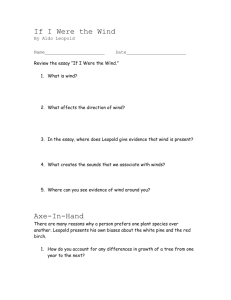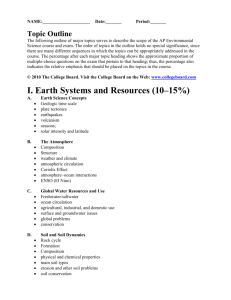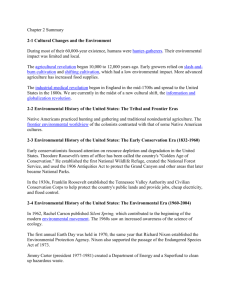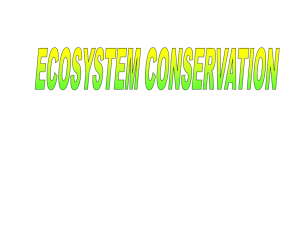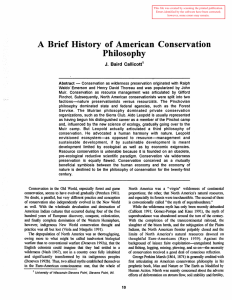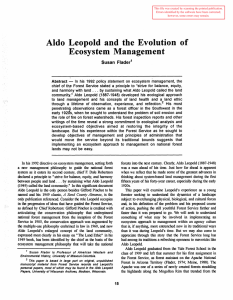Document 11863640
advertisement
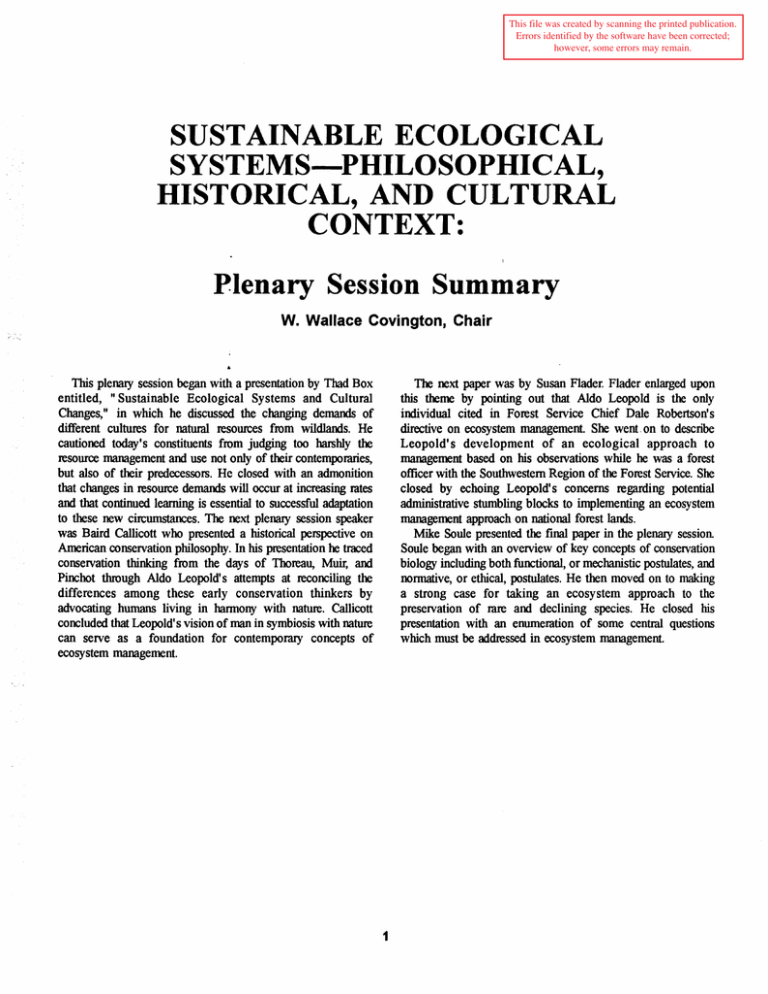
This file was created by scanning the printed publication. Errors identified by the software have been corrected; however, some errors may remain. SUSTAINABLE ECOLOGICAL SYSTEMS-PHILOSOPHICAL, HISTORICAL, AND CULTURAL CONTEXT: Plenary Session Summary W. Wallace Covington, Chair The next paper was by Susan Flader. Flader enlarged upon this theme by pointing out that AIdo Leopold is the only individual cited in Forest Service Chief Dale Robertson's directive on ecosystem management. She went. on to describe Leopold's development of an ecological approach to management based on his observations while he was a forest officer with the Southwestern Region of the Forest Service. She closed by echoing Leopold's concerns regarding potential administrative stumbling blocks to implementing an ecosystem management approach on national forest lands. Mike Soule presented the fmal paper in the plenary session Soule began with an overview of key concepts of conservation biology including both functional, or mechanistic postulates, and nonnative, or ethical, postulates. He then moved on to making a strong case for taking an ecosystem approach to the preservation of rare and declining species. He closed his presentation with an enumeration of some central questions which must be addressed in ecosystem management. This plenaty session began with a presentation by Thad Box entitled, "Sustainable Ecological Systems and Cultural Changes," in which he discussed the changing demands of different cultures for natural resources from wildlands. He cautioned today's constituents from judging too harshly the resource management and use not only of their contemporaries, but also of their predecessors. He closed with an admonition that changes in resource demands will occur at increasing rates and that continued learning is essential to successful adaptation to these new circumstances. The next plenaty session speaker was Baird Callicott who presented a historical perspective on American conservation philosophy. In his presentation he traced conservation thinking from the days of Thoreau, Muir, and Pinchot through AIdo Leopold's attempts at reconciling the differences among these early conservation thinkers by advocating humans living in hannony with nature. Callicott concluded that Leopold's vision of man in symbiosis with nature can serve as a foundation for contemporary concepts of ecosystem management. 1
